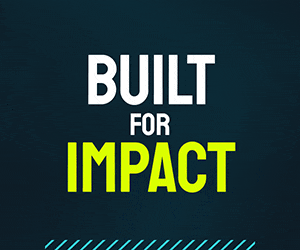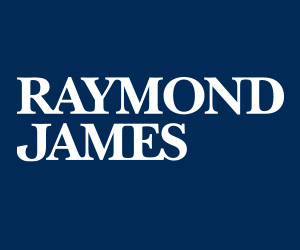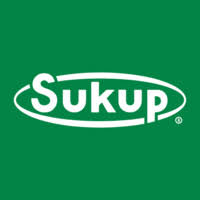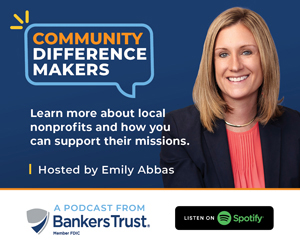Indigo Dawn takes a little green a long way

Chaden Halfhill’s quest to convert a historic Sherman Hill property into a model for sustainable redevelopment continues.
Halfhill is utilizing a variety of resources to fund the estimated $2.6 million commercial real estate project, which includes an educational aspect that he hopes will benefit the architects, developers and contractors who tackle similar projects in the future.
In 2006, operating as Indigo Dawn LLC, he conceived the project with the purchase of the former H&H Grocery Store building at 800 19th St. And though a tough economy has delayed Halfhill’s big plans for the 0.3-acre parcel and 3,384-square-foot building, his long-term vision hasn’t been diminished.
“I’m getting coursed in compliance management,” said Halfhill, who has been working for four years to convince a slew of green-minded investors that his project will meet their expectations.
In addition to its commercial component – a women’s holistic health clinic will occupy the ground level of the two-story building and the second floor will be transformed into a 2,000-square-foot market-rate apartment – Halfhill intends the project to become a resource for others. “I chose this building as a way to study and look at environmental impacts and how this building can influence decisions on future buildings,” he said, noting that his team will develop a best-practices manual to help others understand and undertake the design and construction of sustainable communities.
In addition to committing nearly $200,000 of his own money to the project, Halfhill, the founder and owner of Silent Rivers Design + Build in Clive, has tapped about a dozen other financing streams.
Indigo Dawn took out a $400,000 construction loan from Veridian Credit Union, as well as a $220,000 economic development bridge loan and a $185,000 economic development loan from the city of Des Moines. The city also awarded the company a $15,000 Neighborhood Revitalization Façade Grant, and the project is eligible for more than $450,000 in state and federal historic tax credits.
The State Historical Society awarded Indigo Dawn a $38,500 Historical Resource Development Grant, which will help fund the rehabilitation of the building’s foundation, masonry and storefront.
A number of other loans and grants will help fund storm water retention efforts.
“One of the things that makes this site even more interesting, is that he is going to be doing so many things to manage water on the property,” said Jennifer Welch, an urban conservationist with the Polk Soil & Water Conservation District.
That Ankeny-based agency awarded Indigo Dawn more than $7,600 to help pay for a permeable paved parking lot that will allow water to filter through the surface and into an underlying rock chamber.
A $95,000 I-JOBS grant has been awarded to Indigo Dawn to help fund nine facets of the project, including the installation of a rooftop garden and a rainwater collection system, as well as the re-establishment of native prairie grasses.
“We’re also supporting some of the design work and some of the public outreach effort,” said Jeff Berckes, a senior environmental specialist with the Iowa Department of Natural Resources (DNR), which administers the Improved Green Stormwater Best Management Practices Grant program.
Jordan Vaughn, a program planner with the Iowa Office of Energy Independence, said a $250,000 grant from the State Energy Program will help Indigo Dawn pay for new windows and an energy-efficient heating, ventilation and air conditioning system.
“Public education was also a component of the grant,” Vaughn said. “There will be a kiosk on site that you will be able to walk up to and view.”
In all, Halfhill plans to spend $60,000 on research and $265,000 on outreach and education.
In addition to pursuing Leadership in Energy and Environmental Design (LEED) Platinum certification, Indigo Dawn is taking part in a new program created to promote sustainable land development and management practices that can apply to sites with and without buildings.
“The Sustainable Sites Initiative (SITES) is a series of checklists; it’s an initiative … similar to what LEED is in terms of a comprehensive look at green building,” Halfhill said. “The two are very closely aligned. The SITES pilot project looks at a further refinement of the process.”
Of the more than 150 projects in various stages of development participating in SITES’ two-year pilot program, including three in Canada, one in Iceland and one in Spain, the Indigo Dawn project is the only one in Iowa.
Welch said reducing storm water runoff is especially important in urban areas because water tends to pick up more pollutants as it flows into river systems.
Tom Hadden, executive director of Metro Waste Authority, said his agency’s Growing Green Communities nonprofit division awarded Indigo Dawn a $25,000 grant to construct a bioswale, which will help retain storm water on the site.
Jim Bodensteiner said the DNR’s Solid Waste Alternatives Program (SWAP) gave Indigo Dawn a $125,000 zero-interest loan and a $45,000 forgivable loan.
Bodensteiner, who oversees SWAP, said the program’s primary goal is to reduce the amount of solid waste generated and sent to Iowa’s landfills by providing financial assistance to support the development of best practices.
“The program is based on landfill diversion,” he said, noting that salvage and recycling efforts on the Indigo Dawn site will divert 322 tons of recyclable construction and demolition debris from the landfill.
Halfhill has asked the Iowa Power Fund to contribute $225,000 to Indigo Dawn’s outreach and education element.
“It’s a pretty intense process,” said Don Tormey, an Iowa Office of Energy Independence spokesman, in confirming Indigo Dawn’s application for support. “We don’t expect any vote on it until the November meeting at the earliest.”
“He’s had to jump through several hoops, because he’s the first one,” said Larry James, one of three Dickinson, Mackaman, Tyler & Hagen P.C. attorneys who are providing up to $25,000 worth of pro bono work to help Halfhill keep all the paperwork straight.
James said the developer envisions a world where sustainable building practices and LEED certifications are less of an exception and more of a norm, not only for large commercial developments, but also for smaller mixed-use and residential projects.
“He sees where this is going,” James said. “It’s that vision that helped him to carry the ball forward. What we’ve done is help around the edges.”
Halfhill, 42, who has worked for four years to move the project forward, said he may never fully realize a return on the time and energy he has already invested into the project. However, he said, the building will “cash flow” and the mortgages will be paid.
Above all, he said the amount of support he has garnered speaks volumes about the project’s importance and vitality.
On Sept. 23, about 120 people attended a groundbreaking ceremony at Indigo Dawn’s site. Halfhill, who resides in a condominium in Sherman Hill, hopes to start the build-out in earnest by the end of October and expects it to last for 12 to 16 months.
“My goal was always about learning from the building, not just making it viable,” he said. “I’m an undercapitalized young man with a big vision. I’ve invested everything I can potentially put into this project to make it real.”











